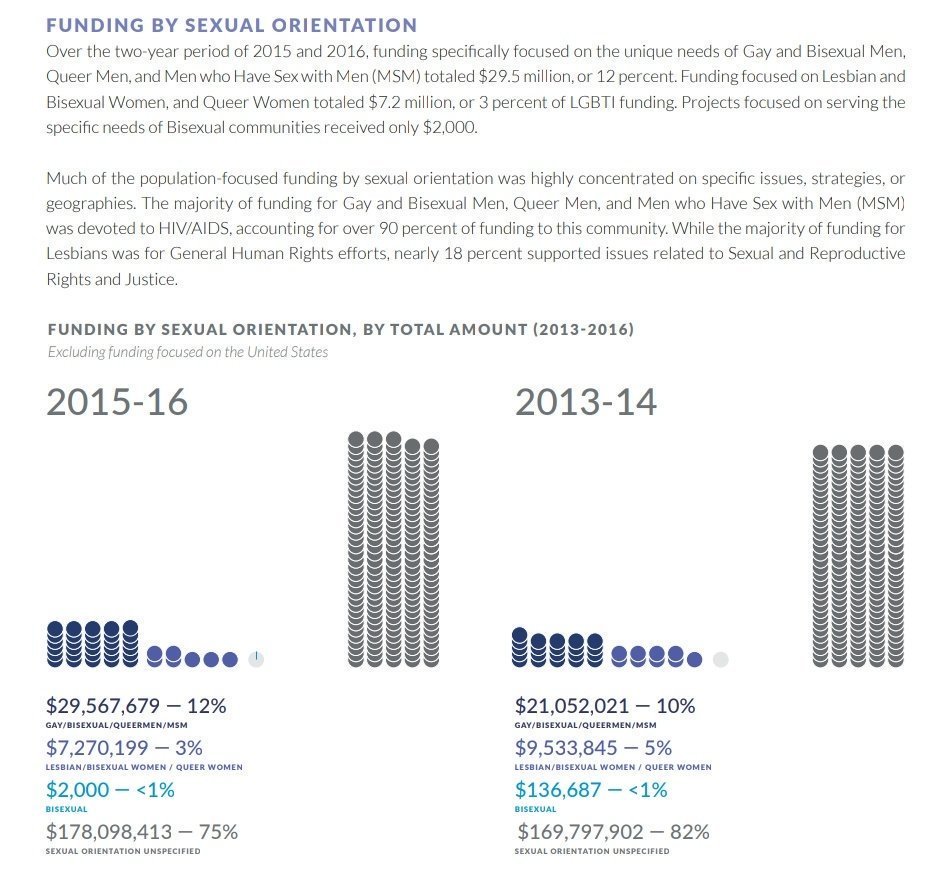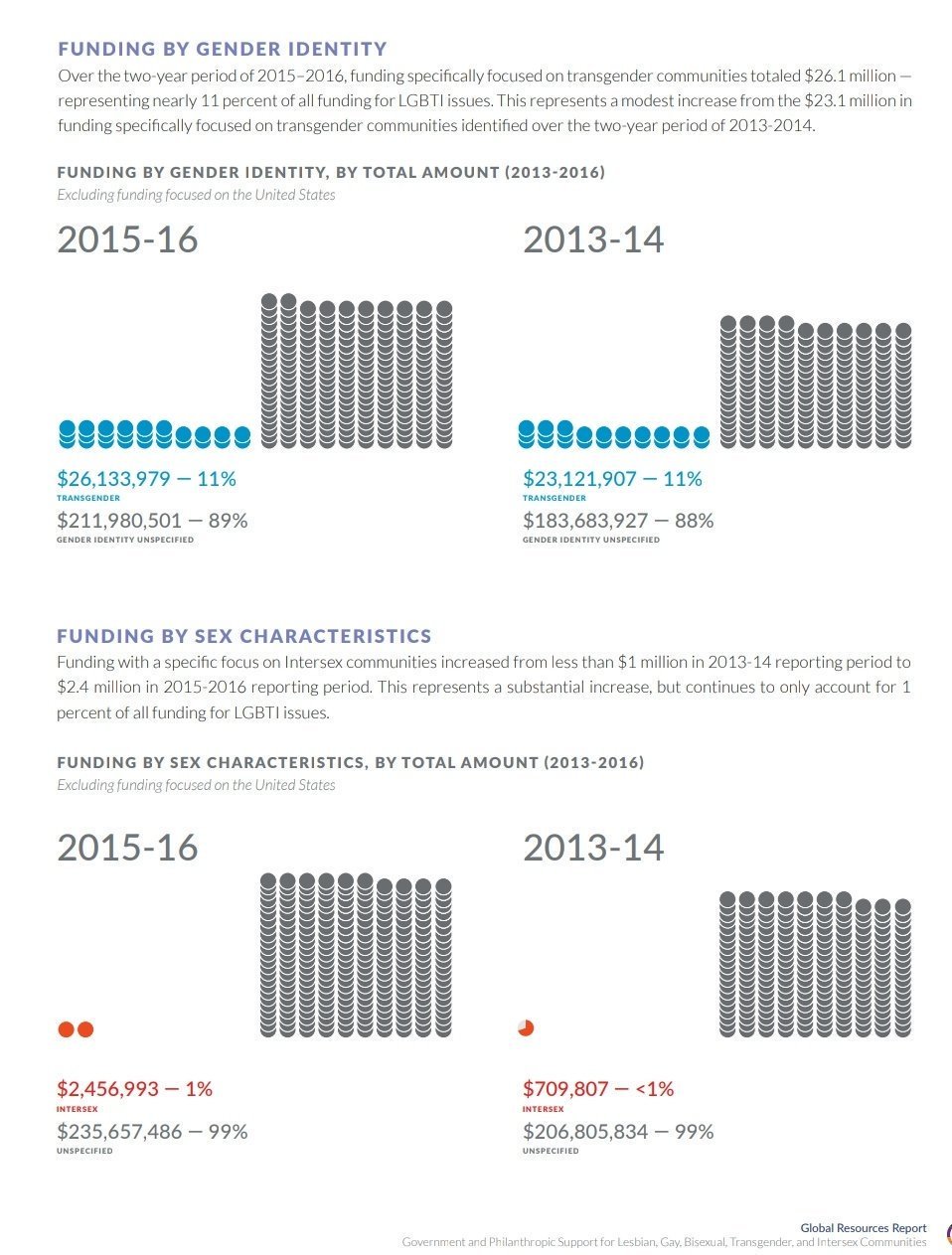I’ve been asked to comment on intersex inclusion in the LGBT+ umbrella, so here goes…
I’m going to say off the bat, I don’t really understand it on a personal level. I’m a straight woman who does not have gender identity issues. I’ve struggled with understanding my body in the past and how being unable to conceive changes some of my interactions with society, but I’m generally a bit gender non-conforming anyway, and I’m perfectly comfortable with that. My sex and romantic life are pretty much unremarkable. MRKH can have practical implications for that, but it’s not something I feel the need to have a parade about.
I don’t want to wear a t-shirt, telling the world I was born without a womb. Not because I’m ashamed but because it’s personal. No one else feels the need to introduce themselves with a description of their genitalia and an update on their fertility status. I’m not “queer”. I could be described as quirky or awkward, I guess, but you should meet some of my friends, to be honest. I’ve always been around the quirky and awkward crowd. I don’t consider myself in need of a label for it. It’s personality, innit?
To be honest, being a straight, “cis” woman with a DSD makes the LGBT+ world seem inaccessible at times. My sexuality and identity are frowned upon for being heteronormative. I grew up fancying boys and hoping to be a mum one day. I’m the antithesis of all thing’s LGBT+. My experience is not like anyone else in that group. I’m only a sexual minority if you count being unable to conceive as a sexual minority, which would put every infertile person under that big ol’ umbrella too. See how we don’t do that because it’s weird and unnecessary?
In the early days of intersex advocacy, some activists saw their place as being part of the disability rights movement. This makes sense to me as an adult with a DSD. The place where I’ve experienced the most difficulty with MRKH is in a medical setting. Either by not having my medical needs met adequately, because doctors are unaware of MRKH and its other health implications due to its rarity, or in my poor understanding of my own medical condition and body. I could have done with some help with that in the past.
It would have been useful to have been offered some form of counselling upon diagnosis, where I could have gone back and asked questions once information had been absorbed and I wanted to talk through the thoughts and feelings I had. It would also have been nice to have had some continuing access to that throughout life, as my feelings and questions change. One of my favourites right now is “what will menopause look like for me?”. I may not be there yet, but I’d like to understand that so, unlike puberty, this time I know my body and what it’s doing. I don’t see LGBT+ inclusion doing anything to help me with that or even acknowledge that these may be issues for intersex people. Why would they? It’s mundane, sticking a rainbow on it isn’t going to improve it.
I similarly have issues with including babies and children under the LGBT+ umbrella. I can’t imagine anything more inappropriate than describing a new-born intersex child as “queer” to their parents. “Congratulations, your child is smashing gender norms” adds nothing to the conversation. Not when the parent is trying to understand what doctors are telling them and make complex decisions about medical interventions. Arguably, this does nothing to help prevent unnecessary surgeries as parents are denied the ability to access the information they need to make alternative choices.
This brings me on to one more point that I hate about the LGBT+ inclusion; being tone policed for the way I talk about MRKH. There’s nothing more frustrating than being told that I’m “pathologizing” my own medical condition. I’m going to explain this simply. To pathologize means to “view or characterize as medically or psychologically abnormal”. I am perfectly comfortable acknowledging that my reproductive tract isn’t normal, in as much as it’s not typical. If this were not the case, no one would have noticed my lack of periods and no doctor would have investigated. I wouldn’t have been diagnosed with MRKH and I wouldn’t be here writing this blog. I would love MRKH to be studied and understood better. Compared to some DSDs, we’re lacking quite a bit in that department. If that means I’m pathologizing myself, fine, pathologize the shit out of it. Make the world better for the next generation of MRKH girls.
Don’t get me wrong, it’s not like I don’t understand maybe how or why we got here. One of the first intersex activists, Bo Laurent, better known as Cheryl Chase, is a lesbian, so naturally felt her campaign for intersex rights worked with her campaign for LGBT+ rights. Also, trans activists have involved themselves with the intersex rights movement from the start, such as Riki Anne Wilchins who was good friends with Laurent in the early days of campaigning. I’ve discussed the possible motivations for this before, so I won’t go into that again here. I sometimes see us as unwilling hostages under the rainbow coloured umbrella, but I can’t deny history nor that some intersex advocates today continue to welcome the inclusion.
I’ve spoken to activists at Oii about this, as they are one of the most visible intersex orgs and keen to push LGBT+ inclusion. Their explanation is that they welcome it because they need the funding from trans orgs. Take, for example, Oii’s 2019 European Community Event & Conference. This is to be held in Zagreb, Croatia, and is being hosted by TransAid. When I asked about this, I was told that Croatia does not have an intersex org presence and only one person in the country is openly “out” as intersex, so that person relies on TransAid for support (as in office space etc). Having investigated this more carefully, it turns out the intersex person in question is an employee of TransAid. It does make me question, are they really the “only out intersex person” in the whole of Croatia, or are they the only one willing to toe the party line?
That’s not to say I don’t believe intersex people and orgs may welcome the funding from the well oiled trans machine. A report from Global Philanthropy Project in 2016 showed that investment in intersex initiatives accounts for only 1% of all global LGBT+ funding. This hardly seems adequate when the LGBT+ umbrella loves to remind everyone that we represent 1.7% of the entire population. I’m going to share a screenshot of their comparative tables here. They really speak for themselves.


It’s not even worth pretending all money earmarked intersex even makes it as far as intersex hands. To take an example close to home, The Equality Network/Scottish Trans Alliance received funding of £90k over a period of three years for an “intersex project”. Although £45k of this funding was first received in 2016, by the time of the census consultation last year, the government were told that the project was “still in its early stages” with nothing to show for it. Even if you visit their website now, they happily tell you they’re “not the experts in the remit of lived experience of being intersex”. Which begs the question where that money has gone, especially when organisations like dsdfamilies *are* the experts and struggle for financial support, despite doing amazing work with peer support and information for young people with DSDs and their families. Shamefully, according to this FOI request, it would seem the Scottish govt don’t even know they exist.
In summary, I just don’t really know what we’re doing there, tagged onto the end of the LGBT+. I understand the motivations of others to co-opt us, and I understand that money makes the world go around, but I’m unclear where this has ever actually helped intersex people/people with DSDs. I feel really sad about the orgs and activists who have sold us out over the years and how they no longer see their path as being one of education and openness, instead selling confusion under the guise of rainbows, glitter and umbrellas to support the identities of others. There’s no real I in the LGBT+. There’s no “intersex culture” that ties us to each other and us to pride. We’re not a sexual or gender minority, nor a monolith. While I hope any intersex person/person with a DSD would feel welcome under that umbrella, if they are L, G, B or T, you don’t have to include us all. In fact, when you look what it does or doesn’t do for us, I’d rather you didn’t. Thanks.

It looks like LGB strayed into inclusion of heterosexuals with the addition of the T, dragging the I kicking and screaming along with it. It reminded me that I had happened by chance to come across the open letter from AISSG to GIRES in 2000, protesting attempts by a Trans organisation with little knowledge of existing Intersex networks to subsume Intersex interests within its remit.
https://web.archive.org/web/20180705232636/www.aissg.org/15_ANNOUNCE.HTM#14%20May%202000
It looks as if the “intersex takeover” was more successful, at least on paper, in Scotland, and what a shocking misuse of public funds as a result! Now that the Scottish Government has been made aware that there ARE organisations capable of undertaking this work they should surely recover the funding from The Equality Network/Scottish Trans Alliance and redirect it to benefit people with DSDs, as originally intended.
“It’s not even worth pretending all money earmarked intersex even makes it as far as intersex hands. To take an example close to home, The Equality Network/Scottish Trans Alliance received funding of £90k over a period of three years for an “intersex project”. Although £45k of this funding was first received in 2016, by the time of the census consultation last year, the government were told that the project was “still in its early stages” with nothing to show for it. Even if you visit their website now, they happily tell you they’re “not the experts in the remit of lived experience of being intersex”. Which begs the question where that money has gone, especially when organisations like dsdfamilies *are* the experts and struggle for financial support, despite doing amazing work with peer support and information for young people with DSDs and their families. Shamefully, according to this FOI request, it would seem the Scottish govt don’t even know they exist.”
https://www.gov.scot/publications/foi-19-00068/
FOI reference: FOI/19/00068
Date received: 9 Jan 2019
Date responded: 6 Feb 2019
Information requested
You asked for us to provide information in relation to the £45K grant awarded to Equality Network/Scottish Transgender Alliance:
1. Were any other organisations considered for the grant?
2. Was there an competitive tendering process?
3. If so, was this open or closed/invited? If closed/invited, please state all organisations/individuals asked.
4. On what evidence did the Scottish Government base its concerns about “unnecessary genital surgeries” for intersex children? Please state the source.
5. Did the Scottish Government consult with the NHS Scotland Scottish Differences in Sex Development (SDSD) (formally Scottish Genital Anomalies Network, SGAN) network about its concerns in relation to “unnecessary genital surgeries”?
Response
The answer to your questions are as follows:
1. No other organisations were considered for the grant. – Funding was provided to the Equality Network because they were the only organisation in Scotland, to the knowledge of the Scottish Government, that had begun to look at this issue.
2. As the bid was less than £50K, it came in under the procurement threshold.
3. N/A, given the answer to question 1
4. The decision to fund the Equality Network for this work was made on the merit of the organisation’s application. They stated that such activity is recommended and the need evidenced by the United Nations, Council of Europe and EU Fundamental Rights Agency. The following information may be helpful in this regard:
UN Factsheet: https://unfe.org/system/unfe-65-Intersex_Factsheet_ENGLISH.pdf
Council of Europe Commissioner for Human Rights Intersex Issue Paper and Video Message: http://www.coe.int/en/web/commissioner/thematic-work/LGBTI
EU Fundamental Rights Agency: http://fra.europa.eu/sites/default/files/fra-2015-focus-04-intersex.pdf
5. The Scottish Government is committed to seeking views about how we should address the issues experienced by people with variations in their sex characteristics and plans to publish a consultation for this purpose. To help inform that consultation, including the various draft impact assessments, officials have been meeting with a range of groups and individuals. The Scottish Government Equality submission to the Scotland’s Census 2021 – Topic Consultation by National Records of Scotland, was submitted in 2016. At that time, the Scottish Government had become aware of concerns expressed internationally such as by the United Nations Special Rapporteur(1) and the Council of Europe(2) about the experiences of people with variations of sex characteristics, including in medical contexts and from groups representing people with variations. (Later in 2016, the Concluding Observations of the UN Committee on the Rights of the Child on the Fifth Periodic Report on the UK also raised concerns about “cases of medically unnecessary surgeries and other procedures on intersex children before they are able to provide their informed consent(3)”.) However, the Scottish Government did not consult the SDSD network or individual clinicians on that network prior to issuing the topic consultation response.
(1) At https://www.ohchr.org/Documents/HRBodies/HRCouncil/RegularSession/Session22/A.HRC.22.53_English.pdf
(2) At https://www.coe.int/en/web/commissioner/-/europe-disregards-intersex-people-s-right-to-self-determination-and-physical-integrity
(3) At https://tbinternet.ohchr.org/_layouts/treatybodyexternal/Download.aspx?symbolno=CRC/C/GBR/CO/5&Lang=En, paragraph 45.
—–
Here, have another pint on me! 🙂
https://www.paypal.me/mrkhclaire
Thank you! 💜
Claire, the feminists are asking for you on the new web Spinster – please join? CharlyTheWorm….my name there And, so many gender critical lasses over there….thanks!